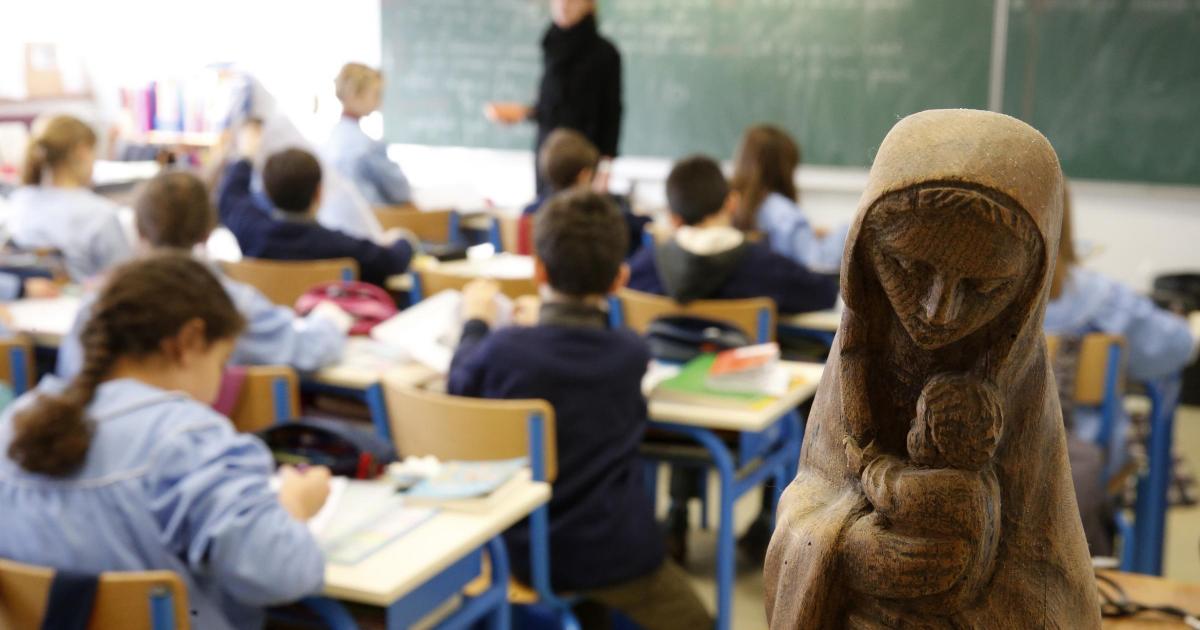
THE Scottish Government is consulting on a minor adjustment to parental rights concerning the withdrawal of young people from religious observance and education.
Parents have held the right to withdraw their children from religious observance for more than 150 years. There is no proposal to allow children to decide whether to opt out – rather, the Government aims to give them a “voice” on the topic.
Conspiratorial whispers suggesting a deep-state-style agenda to abolish Catholic schools by “weaponising children’s rights” border on paranoia.
READ MORE: Ruth Watson: Learning to love vegetables can be child’s play
As a teacher, I am well-versed in the UN Convention on the Rights of the Child. The 54 articles include rights such as the right to play, the right to an education and the right to be protected from abuse
Also included are the rights to freedom of thought, belief, and religion. Article 14 states that: “Every child has the right to think and believe what they choose and also to practise their religion.”
Surely, these rights apply to all children, not just Christians? The consultation addresses withdrawal from religious education and that is something I am uncertain about.
When taught impartially, religious education can offer valuable opportunities for children to understand those who are different and explore their own beliefs.
Lessons on Islam and Judaism have been particularly important in challenging hate directed towards minority groups. However, even the non-denominational religious education curriculum centres on Christianity, labelling the rest as “world religions”, implying they are less relevant to Scottish society.
There is also a lack of acknowledgment for other belief systems, such as atheism and humanism. Given that the Scottish census highlights our increasingly secular society, with spiritual paths such as Paganism gaining popularity, aren’t other beliefs worthy of respect?

I come from a mixed Catholic and Protestant family but Christianity played no significant role in my home life. As I grew older, I became increasingly uncomfortable with prayer in school, feeling as though I was talking to myself. This dilemma resurfaced when I became a teacher.
Christian worship is still a fixture even in non-denominational schools and I often wonder whether any other jobs compel atheists to attend church services and participate in prayer.
Even as an adult, the pressure to conform to this can be substantial. Is it fair to impose this on children?
Over the years, many children have told me they do not believe in God or prefer other ideologies, such as Buddhism, and do not wish to be compelled to pray.
Some find religious observance a waste of time or simply boring. Others have expressed that hymns upset them, questioning why a loving God would allow suffering.
READ MORE: Scots to elect large pro-independence majority in 2026 Holyrood vote, poll finds
As a teacher, my hands are tied unless parents specifically request a withdrawal. And what about those who are withdrawn? Are they given meaningful alternatives or just supervised?
While many children enjoy attending churches for end-of-term services, we can surely do better than this homogeneous approach.
It is disappointing that the consultation is not about giving children themselves the right to withdraw from religious observance, as this discussion is long overdue.
How committed are we to freedom of – and freedom from – religion?
We know there are thousands of National readers who want to debate, argue and go back and forth in the comments section of our stories. We’ve got the most informed readers in Scotland, asking each other the big questions about the future of our country.
Unfortunately, though, these important debates are being spoiled by a vocal minority of trolls who aren’t really interested in the issues, try to derail the conversations, register under fake names, and post vile abuse.
So that’s why we’ve decided to make the ability to comment only available to our paying subscribers. That way, all the trolls who post abuse on our website will have to pay if they want to join the debate – and risk a permanent ban from the account that they subscribe with.
The conversation will go back to what it should be about – people who care passionately about the issues, but disagree constructively on what we should do about them. Let’s get that debate started!
Callum Baird, Editor of The National
We want our comments to be a lively and valuable part of our community – a place where readers can debate and engage with the most important local issues. The ability to comment on our stories is a privilege, not a right, however, and that privilege may be withdrawn if it is abused or misused.
Please report any comments that break our rules.
This website and associated newspapers adhere to the Independent Press Standards Organisation’s Editors’ Code of Practice. If you have a complaint about the editorial content which relates to inaccuracy or intrusion, then please contact the editor here. If you are dissatisfied with the response provided you can contact IPSO here
© 2001-2024. Newsquest Media Group Ltd, 1st Floor, Chartist Tower, Upper Dock Street, Newport, Wales, NP20 1DW | 01676637 |
Data returned from the Piano ‘meterActive/meterExpired’ callback event.
As a subscriber, you are shown 80% less display advertising when reading our articles.
Those ads you do see are predominantly from local businesses promoting local services.
These adverts enable local businesses to get in front of their target audience – the local community.
It is important that we continue to promote these adverts as our local businesses need as much support as possible during these challenging times.










